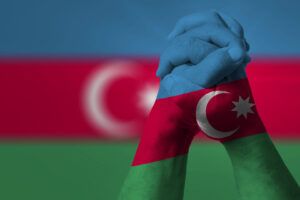Kakha Gogolashvili, Director of EU Studies, Georgian Foundation for Strategic and International Studies
As part of the European Union’s efforts to support vaccination in partner countries, this August the European Commission increased its assistance package from €40 million to €75 million to deploy safe and effective COVID-19 vaccines and speed up the vaccination campaigns in the Eastern Partnership countries. With this new €35 million assistance package, the EU seeks to substantially increase access to vaccines in the Eastern Partnership region amid the global vaccine shortage.
StrategEast has interviewed leading EaP experts to hear their thoughts on the EU’s role in vaccination process in their home countries. Here are the answers from Georgia.
Since April 2020, shortly after the outbreak of COVID-19 Georgia, as an Eastern partner started benefitting from EU’s assistance and support in fighting operational difficulties, faced by the country’s health sector, and treating economic and social consequences of the pandemic. Thanks to EU’s intervention, Georgia has significantly upgraded its access to the medical equipment, consumables, and drags. Apart from this EU assisted in specialized training of medical personnel. The EU’s assistance was also directed towards supporting small and medium business; fill up the budgetary gaps and attaining macroeconomic stability. New increased EU’s assistance, which comes in line to the appeal by the WHO to the rich countries to share their stock of vaccines with the poor third countries, would additionally contribute to the effective improvement of the healthcare system in Georgia too. This assistance would not definitely stop the pandemic, but help the countries, including Georgia to better mobilize and respond to the health crisis.
Overall package of EU’s assistance to Georgia for 2020-2001 has been set as approximately EUR 400 million in grants and long-term loans. This assistance included EUR 150 million for macro-financial stability 75 out of which was disbursed in February this year. The second part of this aid was conditional and demanded from the Georgian Government completion of the judicial reform, especially by changing the way of appointment of the judges and the Prosecutor General. EU has been requesting this change based on the recommendations by the Venice Commission of the Council of Europe and with the view to push Georgian government and legislature to establish transparent and impartial judiciary in the country.
Regrettably, Georgian government has not fulfilled the criteria for getting the second tranche (due in September 2021) and in order to avoid intensive critics from side of the opposition declared the EU’s (highly favorable) loan not being needed anymore. The argument for such a decision was that the economic sector started quickly recovering from the economic stalemate receiving increased contributions in the budget and there was no necessity to acquire new loans. The decision by the government caused the EU representatives in Georgia, as well as other donors, namely US confused. They warned that Georgia’s refusal to take the loan, and especially denying to fulfill the agreed conditions related to reforms, might have consequences with regard to other funding commitments and promises. It is worse to mention that just month before that Georgian ruling political party – Georgian Dream, withdrew from the multiparty agreement, brokered by EU, namely by Mr. Charles Michele, President of the European Council. The named agreement also contained same obligation – to adjust the way of appointment of Judges of the Supreme Court to the recommendation by the Venice Commission (2019). Again, the reaction from EU side (as well as US) was sharp and not appreciative. Apparently, Georgian ruling party shown its stance not to give up its control over the judicial system, even if it costs worsening of relations with the EU and other Western partners. With such a new reality Georgia’s European aspiration, face serious challenge. So, not only prospects of EU’s newly promised assistance in facilitating the process of acquiring additional vaccines and operating the process of vaccination has become endangered, but also other, much larger commitments, counting billions of euros that EU pledged via such programs as Renewed agenda for recovery and Resilience – New Investment Plan for EaP.




